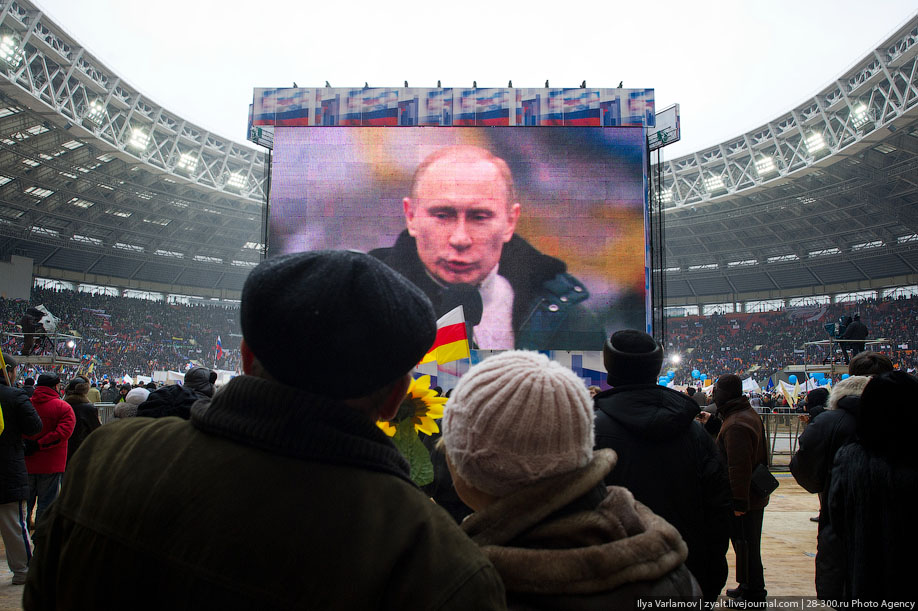Russian society is now divided between “Russian Europeans” and members of a new species, Homo Putinisticus, according to Russian sociologist Igor Eidman; and on the outcome of the battle between these two groups depends not only the future of Russia but much else besides.
In a Deutsche Welle commentary, Eidman notes that each era promotes a set of values which defines the modal personality in it. During the period of the USSR, for example, most people shared a set of values which justified referring to them as homo sovieticus.
“The Soviet man,” he continues, passed from the scene in the early 1990s just as the Soviet Union did; and now, in its place has emerged under Vladimir Putin a sufficiently distinctive and “new social type” that can perhaps be most appropriately described as homo putinisticus
, even though it has not spread to the entire population.
Eidman draws his conclusions on the basis of research conducted by the Friedrich Nauman Foundation and several Levada Center polls on Russian values. (For the former, see this. For the latter, see this.)
The German foundation found that for what Eidman is calling the homo putinisticus
,
The Levada Center in turn found that Russians who fall into this category are
The members of the homo putinisticus represent “the most widespread social psychological type in Russia now,” but there is a significant minority of between 20 and 40 percent who “give completely European responses to the questions of the sociologists,” the Russian commentator says.
Indeed, he continues, “there is reason to think that these “’Russian Europeans’ may be even more numerous” and thus the number of homo putinisticus
lower than the figures the sociologists report.” Some people may not want to dissent from the official line, especially to those they do not know.
And some may simply feel more disposed to European positions when they compare what they see around them with what Moscow’s propaganda asserts. The Kremlin “cannot conceal the crying contradiction between propaganda and reality,” especially given that Russians expect the state to help them and it isn’t doing so.
“This confrontation with reality” which is behind the inherent conflict between homo putinisticus and Russian Europeans represents “a delayed action bomb” under the current Putin majority, Eidman says. Indeed, should it go off, it represents a danger to much else as well.
Related:
- Survey: Most Russians say they want a democracy but don't support democratic values
- "Russians make big money killing Ukrainians" and other neglected Russian stories
- Warning to Kremlin: Its non-Russians likely to become the Irish of the 21 century
- Russians in 1990s sought freedom not democracy and now risk having neither, Tsipko says
- How Russians see Ukraine's independence
- 'If the Russians come back again, they won't be constrained by communism'
- Ukrainians' strong horizontal ties a serious weakness when it comes to their attitudes about Russians, Shchetkina says
- Why Americans are "stupid," according to Russians

